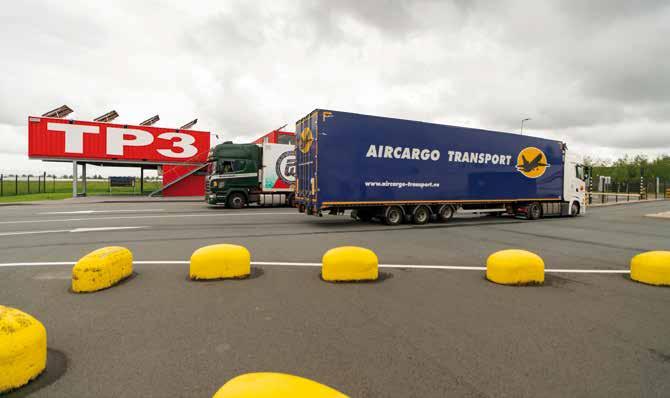68 INTERNATIONAL SECTION
Shaping the future of aircargo In the post-Covid-19 how would air cargo change? Out of the blue, the covid pandemic shattered global commerce, social behaviour and human interchange. Transport of people and goods almost collapsed, and governments rushed to acquire vital medical supplies. The devastation has revealed some serious weaknesses in our social behaviour and our ability to re-establish a “new normal”.
Editor Mike Sales, with input from SASI
The air logistics industry needs to define its future now. Increasingly, leaders are recognising that air cargo should be established as a core business rather than an afterthought that reverts to where it was before the pandemic. For far too long, aviation operators, especially carriers and airports, have ignored the important role played by cargo, placing most of their resources in passenger traffic development and on airport retail. The shock and horror of the overnight loss of activity, which has pushed airlines and airports into panic mode, has highlighted the world’s dependence on air cargo’s ability to keep delivering. If cargo is going to be a core business in the future, a new business model, such as virtual integration, will be required to meet the challenges and opportunities that will emerge. To achieve such changes successfully, a collaborative approach is needed, requiring an additional set of skills. Some forwardthinking carriers started this process before the pandemic, but the urgent need to mitigate the destructive effect
Cargo Magazine
of Covid-19 on the aviation industry has accelerated. The race is on for companies to position themselves as cargo leaders. Strong indications are that passenger travel will be slow to recover, cargo traffic may well be the primary source of revenue for airlines, handlers, forwarders and airports, for the foreseeable future. Most current economic forecasts predict a slow recovery over the next three to four years. During this period, the demand for goods, especially time-sensitive, will continue to expand, often at the expense of traditional retailers. How then do operators exploit the opportunities which e-Commerce presents? As has been demonstrated, large operators such as Amazon have been investing in their own transport fleets but will always call on the cargo airline operators to supply necessary capacity. How will personnel requirements need to change from the handlers, airport operators, road feeder networks? Nearshoring of supply chains and geopolitical impact on demand and capacity and when employees are geographically dispersed and face-to-face personal interaction is restricted, will be some of the factors in play.
This will require a set of skills not traditionally available in logistics-focused education and training programmes. This industry is based on service and to improve business outcomes, considerable investment in developing employees will be vital. Learning and development is usually one of the first casualties of cost reductions, but the air logistics business needs to focus even more on training and developing of personnel to support new objectives. A new business model, in a new normal, requires a change of mindsets and practices, but don’t throw the baby out with the bath water! The technical skills that can meet the immediate and future needs of a company are still needed. Questions to ask are what are the skillsets that are relevant during this time and what will take the industry into the future to operate effectively and profitably in the new environment? Do current leaders have the capability to be flexible and resilient enough to adapt, engage the employees and lead in different situations using different tools?
Digital Transformation Air cargo customers expect the same easy access to booking and tracking shipments as in arranging flights and hotels. To achieve this type of service for air cargo, digitization is the entry point for evolving systems. This results in a streamlined and seamless process with fewer points of disruption in the flow of information.



























